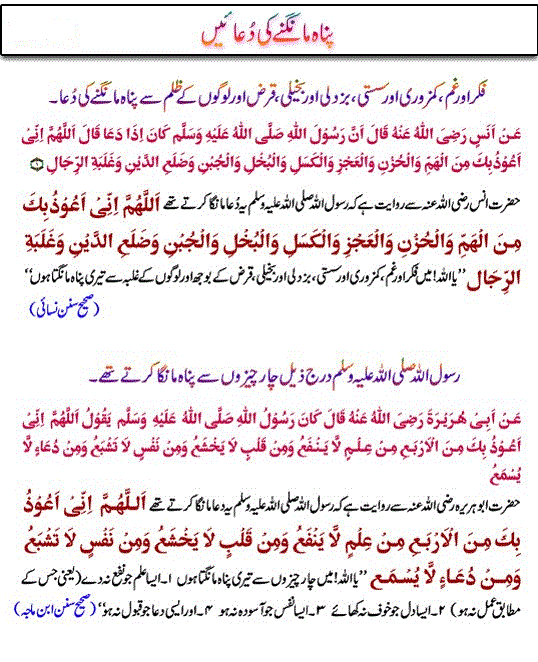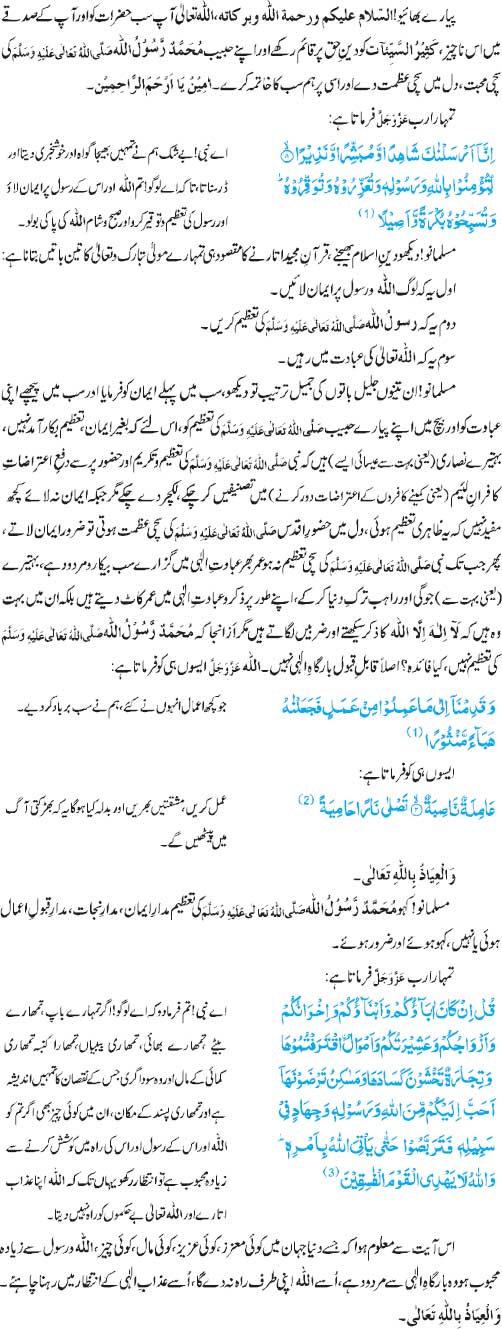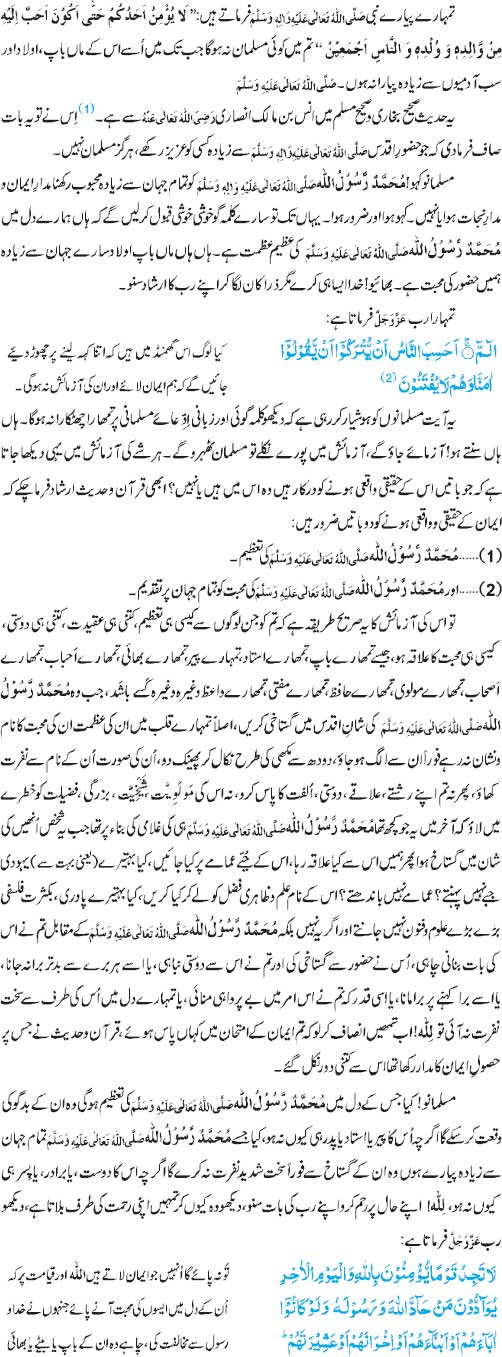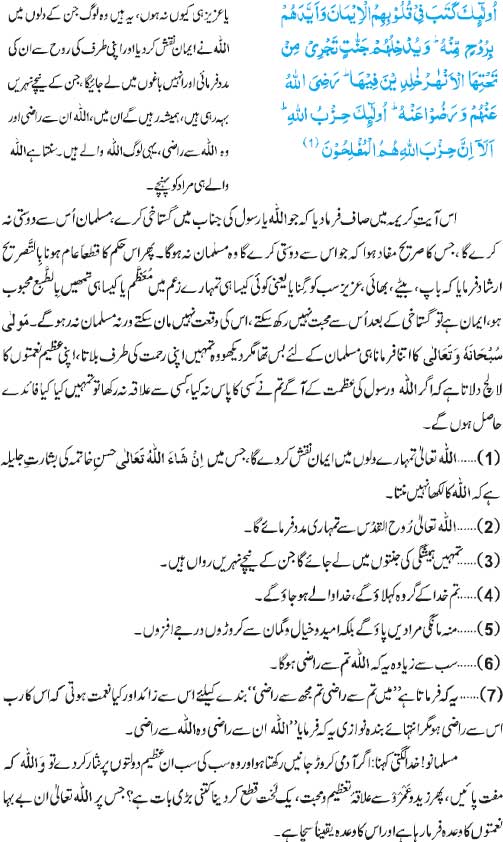
How To Express Gratitude To Allah And Count Your Blessings
………..”Show (thy) gratitude to Allah.”
We bestowed wisdom upon Luqman, (enjoining): “Give thanks to Allah.” Whoso gives thanks to Allah, does so to his own good. And whoso disbelieves (let him know that) Allah is All-Sufficient, Immensely Praiseworthy.
[Qur’an Luqman 31:12]
…“If you give thanks, I will certainly grant you more; but if you are ungrateful for My favors, My chastisement is terrible.
[Qur’an Ibrahim 14:7]
Thank You, Allah
Even though I clutch my blanket and growl when the alarm rings, thank you, Allah, that I can hear. There are many who are deaf.
Even though I keep my eyes closed against the morning light as long as possible, thank you, Allah, that I can see. Many are blind.
Even though I huddle in my bed and put off rising, thank you, Lord, that I have the strength to rise. There are many who are bedridden.
Even though the first hour of my day is hectic, when socks are lost, toast is burned and tempers are short, my children are so loud, thank you, Allah, for my family There are many who are lonely.
Even though our breakfast table never looks like the pictures in magazines and the menu is at times balanced,
thank you, Allah, for the food we have. There are many who are hungry.
Even though the routine of my job is often monotonous, thank you, Allah, for the opportunity to work. There are many who have no job.
Even though I grumble and bemoan my fate from day to day and wish my circumstances were not so modest, thank you, Allah, for life.
It is He Who has created for you (the faculties of) hearing, sight, feeling, and understanding: little thanks it is ye give!
[Qur’an Al Mu’minuun 23:78]
Thank You, ALLAH
Bad-Mazhab Aur Fasiq Kay Peechay Namaz Kay Ahkam

Acts Which Entitle Paradise And Remove Us From Hellfire
Narrated Mu’adh ibn Jabal: (Allah be pleased with him) I said to Allah’s Messenger [Peace be upon him] ‘Inform me about an act which would entitle me to get into Paradise, and remove me away from Hell-Fire’. The Prophet [peace be upon him] said…
You have asked me about a matter which ostensibly appears to be difficult but it is easy to those for whom ALLAH [the Exalted] has made it easy.
#1/- Worship Allah and do not associate anything with him
#2/- Establish Prayer
#3/- Pay the Zakat
#4/ Observe the fast of Ramadan and
#5/ Perform ‘Hajj’ to the sacred House… [ Ka`bah]
The Prophet [Peace be upon him] then said… Should I not direct you to the gateways of good? Listen to me… Fasting is a shield against evil. Charity extinguishes the fire of sin… just as water extinguishes fire. The Prayer of a person during the middle of the night. he then recited … ‘Who Forsake their Beds’… then he continued… Should I not direct you to the highest level of this matter to the Pillar on which it rests and it’s top?
I said…’Yes, do tell me…Prophet [Peace be upon him answered…The uppermost level of the matter is Islam, its Pillar is the Prayer,
and its Top is ‘Jihad’. Should I not inform you of the sheet anchor of all this…?
I said… ‘Yes, Allah’s Apostle of course do it. he took hold of his Tongue and said…Exercise restraint on it.
I said: ‘Apostle of Allah, would we be held responsible for what we say with it?
Thereupon Prophet [Peace be upon him] said… ‘ Mu`adh, may your mother be bereaved. will anything else besides irresponsible talk cause the people to be thrown into the Hell-Fire upon their faces or on their nostrils?
Panah Mangne Ki Duaaien

Allah Seeks Repentance With Mercy
And keep up prayer and pay the poor rate and bow down with those who bow down.
[2. Surah Al-Baqarah : Ayah 43]
Abu Sa’id al-Khudri(Radi Allah Anhu)reported Allah’s Messenger(sal-allahu-alleihi-wasallam)as saying: “There was a person before you who had killed ninety-nine persons and then made an inquiry about the learned persons of the world (who could show him the way to salvation). He was directed to a monk. He came to him and told him that he had killed ninety-nine persons and asked him whether there was any scope for his repentance to be accepted. He said: No. He killed him also and thus completed one hundred. He then asked about the learned persons of the earth and was directed to a scholar, who told him that he had killed one hundred persons and asked him whether there was any scope for his repentance to be accepted. He said: Yes; what stands between you and the repentance? You better go to such and such land; there are people devoted to prayer and worship and you also worship along with them and do not come to the land of yours since it was an evil land (for you). So he went away and he had hardly covered half the distance when death came to him and there was a dispute between the angels of mercy and the angels of punishment. The angels of mercy said: This man has come as a penitent and remorseful to Allah and the angels of punishment said: He has done no good at all. Then there came another angel in the form of a human being in order to decide between them. He said: You measure the land to which he has drawn near. They measured it and found him nearer to the land where he intended to go (the land of piety), so the angels of mercy took possession of it. Qatada said that Hasan told him that it was said to them that as death approached him, he crawled upon his chest (and managed) to slip into the land of mercy.”
[Sahih Muslim : Book 37, Book Name Kitab Al-Tauba Number 6662]
This hadith has been narrated on the authority of Qatada with the same chain of transmitters but (with this variation of wording):” Allah commanded the earth (from where) he wanted to come out to move away and to the other earth (where he wanted to go) to draw nearer.”
[Sahih Muslim : Book 37, Book Name Kitab Al-Tauba Number 6664]
Abu Huraira (Radi Allah Anhu) reported Allah’s Messenger (sal-allahu-alleihi-wasallam) as saying: He who seeks repentance (from the Lord) before the rising of the sun from the west (before the Day of Resurrection), Allah turns to him with Mercy.
[Sahih Muslim : Book 35, Book Name Kitab Al-Dhikr Number 6525]
Abu Musa(Radi Allah Anhu) reported Allah’s Messenger (sal-allahu-alleihi-wasallam)as saying that Allah, the Exalted and Glorious, Stretches out His Hand during the night so that the people repent for the fault committed from dawn till dusk and He stretches out His Hand during the day so that the people may reprint for the fault committed from dusk to dawn. (He would accept repentance) before the sun rises in the west (before the Day of Resurrection).
[Sahih Muslim : Book 37, Book Name Kitab Al-Tauba Number 6644]
Our Lord! grant us good in this world and good in the hereafter, and save us from the chastisement of the fire.
Adab Aur Tazeem-e-Mustafa



Umar Ibn Al Khattab Radiallahu Taala Anhu Loves The Ahle Bayt
Hazrat Umar E Farooq is regarded Highly in the Ummah after Syaddina Abu Bakr Siddique Radi Allahu taala anhu
The Holy Prophet said If there were a prophet after me it would be Hazrat Umar E Farooq Radi Allahu taala anhu.
Following is how Hazrat Umar E Farooq regarded the Ahle Bayt
Sayaddina Umar E Farooq radiallahu taala anhu narrates how the Holy Prophet used to regard his beloved daughter
Umar bin Khattab (radiallahu taala anhu ) (also) narrates that the Holy Prophet Sallalaahu Alaihi wasallam used to say to Fatimah (radiallahu taala anhu), “(Oh Fatimah!) My mother and father be sacrificed for you.”
Shawkani said in Darr-us-sahabah fi manaqib al – qarabah was-sahabah (p. 279)
Hakim narrated it in al -Mustadrak
Umar (raadiallahu taala anhu) narrates, “I heard the Holy Prophet Sallallahu Alaihi Wa Sallam say, ‘The family tree of the children of every woman is attributed to their father except for Fatimah’s(radiallahu tala anhu) children. I am their family and I am their father. ‘”
1. Tabarani, al -Mujam-ul-kabir (3:44#2631)
2. Ahmad bin Hambal, Fadai l-us-sahabah (2:626#1070)
3. Haythami, Majma-uz-zawaid (4:224)
4. Haythami, Majma-uz-zawaid (6:301
Sayadina Umar E Farooq Radi Allahu taala anhu narrates the relationship of the five to the Holy Prophet Muhammed Sallallahu Alaihi Wa Sallam
Umar bin Khattab (radiallahu taala anhu) states, “I heard the Messenger of Allah say, ‘Except for my family and my relationship, every family and relationship will be broken on the Day of Judgement.’”
1. Hakim, al-Mustadrak (3:153#4684)
2. Ahmad bin Hambal, Fadail -us-sahabah (2:625, 626#1069, 1070)
3. Ahmad bin Hambal narrat ed it i n Fadail -us-sahabah
(2:758#1333) through Miswar bin Makhramah as well.
4. Bazzar, al-Musnad (1:397#274)
5. Tabarani, al -Mujam-ul-kabir (3:44,45#2633, 2634)
6. Tabarani, al -Mujam-ul-awsat (5:376#5606)
7. Tabarani, al -Mujam-ul-awsat (6:357#6609)
8. Daylami, al -Fi rdaus bi mathur al -khitab (3:255#4755)
9. Maqdasi, al -Ahadith-ul -mukhtarah (1:198#102)
10. Haythami said i n Majma-uz-zawaid (9:173) Tabarani
narrated it in al-Awsat and al -Kabir and its chain of
transmitters is thiqah (trustworthy).
Once Sayiddina Umar E Farooq Radi Allahu taala anhu was said about the purified five on the Day of Judgement. and the following is what he said
Umar bin Khattab (Radhi Allahu taala anhu) narrates that the Holy Prophet(Sallallahu Alaihi Wa Sallam) said, “Indeed, Fatima, Ali, Hasan, and Husain(may Allah be pleased with them all) will live in a white dome in Paradise. The Throne of Rahman will be its roof .”
1. Ibn Asakir, Tari kh Dimi shq al -kabi r (14:61)
2. Hindi, Kanz-ul -ummal (12:98#34167)
Sayadina Umar E Farooq Radi Allahu taala anhu Congratulated Ali Al Murtuza (radiallahu taala anhu on the Great event of Ghadeer Ul Khulm) when the Holy Prophet Sallallahu Alaihi Wa Sallam declared the beginning of Wilayat
“It is narrated by Bara’ bin ‘Azib(radiallahu taala anhu): We were on a journey with Allah’s Messenger. (On the way) we stayed at Ghadir Khum. There it was announced that the prayer was about to be offered. The space under two trees was cleaned for Allah’s Messenger. Then he offered the zuhr (noon) prayer, and, holding ‘Ali’s(radiallahu taala anhu) hand, he said: Don’t you know that I am even nearer than the lives of the believers? They said: Why not! He said: Don’t you know that I am even nearer than the life of every believer? They said: Why not! The narrator says that he said while holding ‘Ali’ s hand: One who has me as his master has ‘Ali as his master. O, Allah! Befriend the one who befriends him (‘Ali) and be the enemy of one who is his enemy. The narrator says that after this ‘Umar ( bin al-Khattab(radiallahu taala anhu) met ‘Ali(radiallahu taala anhu) and said to him: O Ibn Abi Talib! Congratulations, you have become the master of every male and female believer, morning and evening (forever).”
Ahmad bin Hambal related it from Bara’ bin ‘Azib through two different chains of transmission in al-Musnad (4:281);
Ibn Abi Shaybah, al-Musannaf (12:78 # 12167);
Muhib Tabari, Dhakha’irul-‘uqba fi manaqib dhawi al-qurba (p.125),
ar-Riyad-un-nadrah fi manaqib-il-‘ashrah (3:126, 127);
Hindi, Kanz-ul-‘ummal (13:133, 134 # 36420);
Ibn ‘Asakir, Tarikh Dimashq al-kabir (5:167, 168);
Ibn Athir, Asad-ul-ghabah (4:103);
and Ibn Kathir in al-Bidayah wan-nihayah (4:169; 5:464).
Note the phrase in the following hadith where Hazrat Umar E Farooq(radiallahu taala anhu) Congratulated Ali Al Murtuza (radiallahu taala anhu)
‘Umar ( bin al-Khattab(radiallahu taala anhu) met ‘Ali(radiallahu taala anhu) and said to him: O Ibn Abi Talib! Congratulations, you have become the master of every male and female believer, morning and evening (forever).”
Ahmad bin Hambal in his book Fada’il-us-sahabah (2:610 # 1042)
has added the following words in the tradition related to ‘Umar bin al-Khattab.
The Prophet said: (O Allah!) Be the enemy of one who is his (‘Ali’s) enemy, and help him who helps him, and love him who loves him. Shu‘bah says that the Prophet said in its place, “Bear malice towards him who bears malice towards (‘Ali).”
Manawi has written that when Abu Bakr and ‘Umar had heard the Prophet’s saying — One who has me as his master has ‘Ali as his master — they said to ‘Ali: O son of Abu Talib! You have become the master of every male and female believer, morning and evening (forever).”
Manawi has written in Fayd-ul-Qadir (6:217)
Dhahabi has said in Siyar a‘lam-in-nubala’ that ‘Umar uttered the words:
O ‘Ali! Congratulations
Dhahabi has said in Siyar a‘lam-in-nubala’ (2:623, 624)
“AbuHurayrah has narrated that one who fasted on 18 Dhul-hijjah will receive a reward equal to 60 months of fasting. This was the day of Ghadir Khum when the Prophet, holding ‘Ali bin Abi Talib’s hand, said: Am I not the guardian of the believers? They said: why not, O Messenger of Allah! He said: One who has me as his master has ‘Ali as his master. At this, ‘Umar bin al-Khattab said: congratulations! O Ibn Abi Talib! You are my master and (the master of ) every Muslim. (On this occasion) Allah revealed this verse: Today, I have perfected your religion for you.”
1. Qur’an (al-Ma’idah, the Table spread) 5:3.
2. Khatib Baghdadi related it in Tarikh Baghdad (8:290);
3 Wahidi,Asbab-un-nuzul (p.108); Razi, at-Tafsir-ul-kabir (11:139);
4. Ibn ‘Asakir, Tarikh Dimashq al-kabir (45:176,177); Ibn Kathir, al
Umar E Farooq Radi Allahu taala anhu Respected Hazrat Fathima radiallahu taala anhu highly
Umar bin Khattab says that he went to the house of Fatimah the daughter of the Messenger of Allah and said, “Oh Fatimah! I swear by Allah that I have not seen anyone who is dearer to the Messenger of Allah than you. I swear by Allah that nobody is dearer to me than you after your father”
1. Hakim, al-Mustadrak (3:168#4736)
2. Ibn Abi Shaybah, al -Musannaf (7:432#37045)
3. Shaybani, al -Aahad wal -mathani (5:360#2952)
4. Ahmad bin Hambal, Fadai l-us-sahabah (1:364#532)
5. Khat ib Baghdadi, Tarikh Baghdad (4:401)
Hazrat Umar E Farooq Radi Allahu taala anhu regarded Hazrat Ali radiallahu taala anhu as his Maula after the Ghadeer declaration
“It is narrated by ‘Umar that once a person had an argument with him. He said: the man sitting here will decide between you and me, and he pointed towards ‘Ali. That man said: this pot-bellied person (will decide between us)! ‘Umar rose from his seat, caught him by the collar, and lifted him from the ground. Then he said: Do you know that the person you consider worthless is my master as well as the master of every Muslim.”
1. Muhib Tabari has said in ar-Riyad-un-nadrah fi manaqib-il-‘ashrah (3:128) that Ibn Samman has documented this narration
“It is narrated by ‘Umar that two Bedouins came to him disputing with each other. He said to ‘Ali: O Abu Hasan: decide between these two. So he decided between them (and settled their dispute). One of them said: Is he the only one left to decide between us? (At this) ‘Umar moved towards him and caught him by his collar and said: May you be dead! Do you know who he is? He is my master and the master of every believer ( and) one who does not acknowledge him as his master is not a believer.”
1. Muhib Tabari has narrated this tradition in Dhakha’ir-ul-‘uqba fi manaqib dhaw-il-qurba (p.126), and says that Ibn Samman mentioned it in his book al-Muwafaqah. He also narrated it in ar-Riyad-un-nadrah fi manaqib-il-‘ashrah (3:128).
Umar said: that one who has Allah’s Messenger as his master has ‘Ali as his master.
“ Salim narrates: ‘Umar was asked why he always treated ‘Ali differently from other Companions. (At this) ‘Umar replied: Indeed that ( ‘Ali) is my master .”
1. Related by Muhib Tabari in ar-Riyad-un-nadrah fi manaqib-il-‘ashrah (3:128).
Ibn ‘Asakir narrated it in Tarikh Dimashq al-Kabir (45:178).
Few people particularly the Shia have fabricated stories about Hazrat Umar radiallahu taala anhu Slapping bibi fathimatuz zuhra radiallahu taala anhu, and other stories about him burning their houses, etc, All these are fake as you can see from these References how he regarded the Ahle Bayt, the people from the Wilayat began, The Ahle Bayt.
People should understand that there are two legacies of the Holy Prophet Muhammed Sallallahu Alaihi Wa Sallam , one is the Spiritual Legacy and saintism which continued from the Progeny of the Holy Prophet Muhammed Sallallahu Alaihi Wa Sallam, and then to Awliya.
And the other legacy is outwardly, The Legacy of Dominion which continued through the Rightly Guided Khalifas beginning from Syedina Abu Bakr Siddique Radi Allahu taala anhu
Both the legatees gave support to each other wholeheartedly
Tanveer Pasha
Allah Ki Naimatoo Ki Qadar Kijiye

The First Step to Paradise
Remember that Islam is a state of becoming not a state of being. Each day you must strive to improve and better yourself — and you will improve. The first step in self-development is to concentrate single-mindedly on paradise… Indeed, the one who is unsure of his destiny in life, torn between this world and the next, like one standing with his feet in two separate boats, will be thrown off balance.
Many of the difficulties that we face are due to this lack of commitment and inability to focus on the real and ultimate goal. If you can keep your focus on paradise, then everything else will be possible.
Beginning a New Journey
The selection of the ultimate goal of Paradise must be made consciously and may involve an absolute break with the past. To choose this new goal as the ultimate goal is in fact to choose a new life, to begin a new journey.
Embark on this new journey by refreshing your ablution and offering two rakahs(units) of Salah (prayer) reminding yourself of all the punishment of Hell-fire you have just resolved to avoid at all costs and all the rewards of paradise that you Remind yourself also of the important stations and landmarks on the journey: imagine death as near; imagine the moment when the Angel of Death will declare, “your time is over, now you must follow me”, imagine that moment when you will be made to stand in the presence of Allah, Most High, so that the final judgment of life may be passed on you and imagine the consequences of that judgment.
When you have completed the two rakahs then resolve once more that all efforts will be directed towards achieving paradise, beseech Allah and pray with humility:
“O Allah, I ask for Your mercy and whatever brings me closer to it, in word and deed. O Allah, I ask for a faith that will never vanish, a blessing that will never diminish, a pleasure that will never abate, and the most elevated position in paradise distinguished by the companionship of Your Messenger, Muhammad.”
While improvement in your habits and actions is a life-long process, the desire to achieve it can thus be sparked in a moment. This desire will provide the momentum for attaining your goal — the good pleasure of Allah and paradise.
Your Mission
What Allah requires of you, in Quranic vocabulary, is for you to be a mu’min and mujahid. Having taken the first step and resolved to attain Paradise, you may ask yourself, what does Allah require from me in order for me to succeed?
A mu’min is one who is true and firm in his faith in God.
A mujahid is one who strives his utmost, with all the means at his disposal, to gain God’s pleasure.
If you are a mu’min and a mujahid, Allah, the Most Exalted in Power and yet the Most Compassionate, will assist you to rise to higher stations both in this world and in the Hereafter.
Allah has promised this to those who possess the qualities of iman (faith) and the active resolve for jihad, or struggle. The Quran states:
{The Believers are only those who have attained faith in God and His Messenger and have left all doubt behind, and who strive hard in God’s cause with their possessions and their lives: it is they, they who are true to their word.} (49:15)
You now have a mission: to become a mu’min and mujahid… As you embark upon this mission you may come to feel that your knowledge of Islam is somewhat limited or perhaps that you are unable to attain those heights of submission and purification that you desire or others expect of you.
This is only natural. You must not, however, allow these feelings of personal shortcomings to undermine your efforts to practice Islam.
A State of Becoming
Remember that Islam is a state of becoming not a state of being. Each day you must strive to improve and better yourself — and you will improve.
Tazkiya or this new program for self-improvement that you now find yourself in is a process that unfolds itself step by step.
You cannot expect to change all at once. This is against the laws of nature. The Prophet was always aware of this when he was dealing with his Companions.
Whenever someone embraced Islam, the Prophet would not ask that person to do everything immediately. Instead, he would teach and expect that person to start fulfilling his obligations only as much as he could bear at a time.
This gradual process of change is also clearly reflected in the manner in which the Quran was revealed over a period of 23 years. In all your efforts toward becoming a better believer, you must bear in mind this principle of gradualism, otherwise, you may try to attain the impossible, and when you do not achieve it, you may become frustrated.
A Bargain with the Divine
Once you have committed yourself to Allah, all that you have must be spent in His way.
At this stage, what matters most is that your bargain with Allah, iman, remains sound and firm. This definition of iman is perhaps a little different from the definition you usually hear. It is, however, a definition that we find in the Quran.
Furthermore, attainment of such iman allows you to be counted among the true and sincere servants in the eyes of your Lord. The Quran states:
{Behold, God has bought of the Believers their lives and their possessions, promising them Paradise in return, they fight in God’s cause, and slay, and are slain: a promise which in truth He has willed upon Himself in the Torah, and the Gospel, and the Quran. And who could be more faithful to his covenant than God?} (9:111)
Once you have committed yourself to Allah, all that you have must be spent in His way. This is the ideal. Ideals, however, are always difficult to achieve — and this you must understand and accept. Ideals are always to be pursued; if they are easily and always achievable, they can hardly remain as ideals.
Keeping to your side of the bargain is an ideal you must always seek to maintain.
It is this seeking and this striving to spend all that we have in the way of Allah that is known as jihad and, in this instance, as tazkiya.
By Khurram Murad
- October, 1
- 2706
- Paradise-Hell
- More

